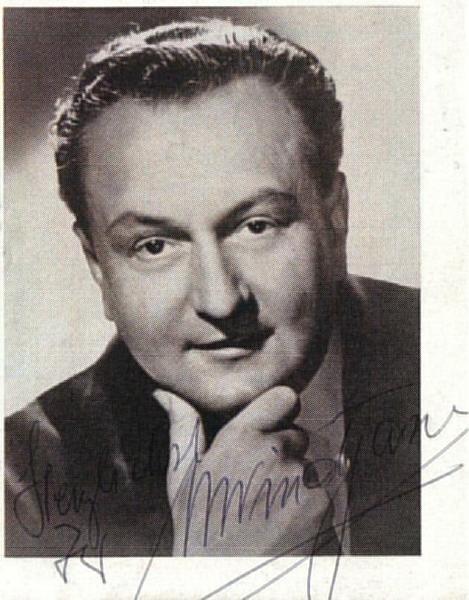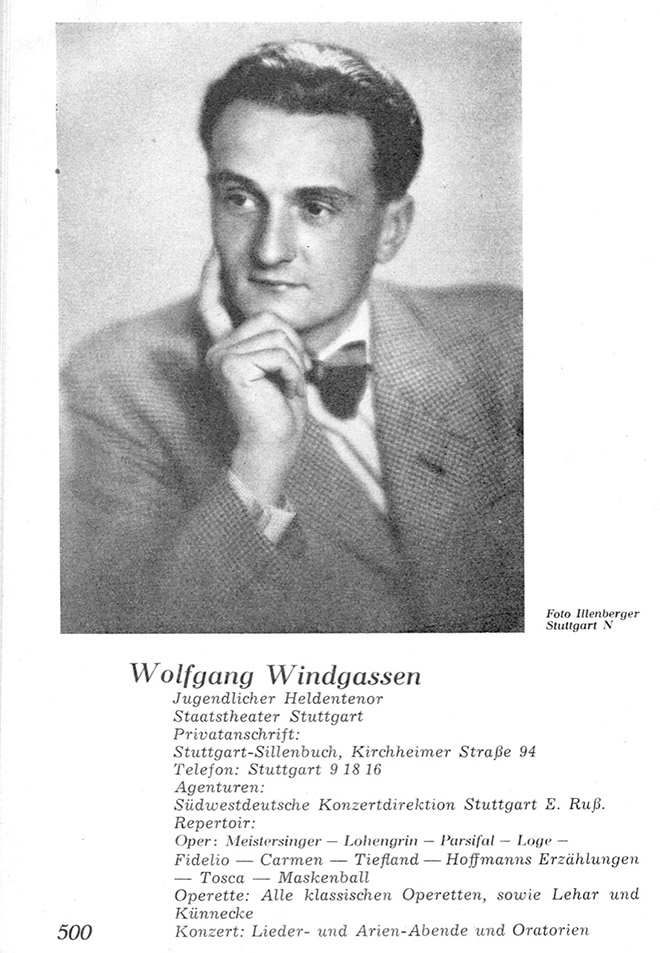Wolfgang Windgassen was born on June 24th, 1914 in Annemasse, France. His father was
Fritz Windgassen, tenor in Kassel and Stuttgart. His mother was Vally van Osten,
coloratura soprano in Kassel and sister of Eva von der Osten, who was a favorite in Dresden. Wolfgang Windgassen was married
twice. His second wife was the soprano Lore Wissmann.
At the beginning, Windgassen was a voluntary technical assistant at the Stuttgart opera. He then studied singing with Alfons
Fischer and with his own father at the Stuttgart conservatory.
Windgassen made his debut in 1939 at the Stadttheater Pforzheim as Pinkerton.
After the war, Windgassen was engaged at the Staatsoper Stuttgart. First, he sang roles such as Tamino, Hoffmann,
Alfredo, Riccardo, Duca, Alvaro, Radamès, Rodolfo, Cavaradossi, Pinkerton, Schwalb (first German performance of Mathis der Maler), Canio,
Turiddu, Florestan and Max.
In 1951, Windgassen started singing Wagner roles. His first Siegmund, in 1951, at the Stuttgart Staatsoper was a great
success. He sang at the Bayreuth Festival from 1951 to 1970: Erik, Tannhäuser, Lohengrin, Loge, Siegmund, Siegfried (x2),
Stolzing, Tristan and Parsifal.
His repertory included, besides the Wagner roles, Adolar, Kaiser, Florestan, Otello, Eisenstein and even Orlofsky for the TV.
Windgassen sang in Wien, Paris, London, Milano, Barcelona, Buenos Aires, Sydney, New York and San Francisco among others. He
remained a member of the Stuttgart Staatsoper until his death. In 1970, he started to direct operas. From 1972 to 1974, he was
the artistic director of the Stuttgart Staatsoper, and from 1963 to 1972 president of the Genossenschaft Deutscher
Bühnenangehöriger (kind of a stage artists trade union).
On September 8th in Stuttgart, 1974 he died suddenly from a heart attack, after singing Tannhäuser for his 60th birthday.
Windgassen is buried at the Waldfriedhof Stuttgart.
Reference

